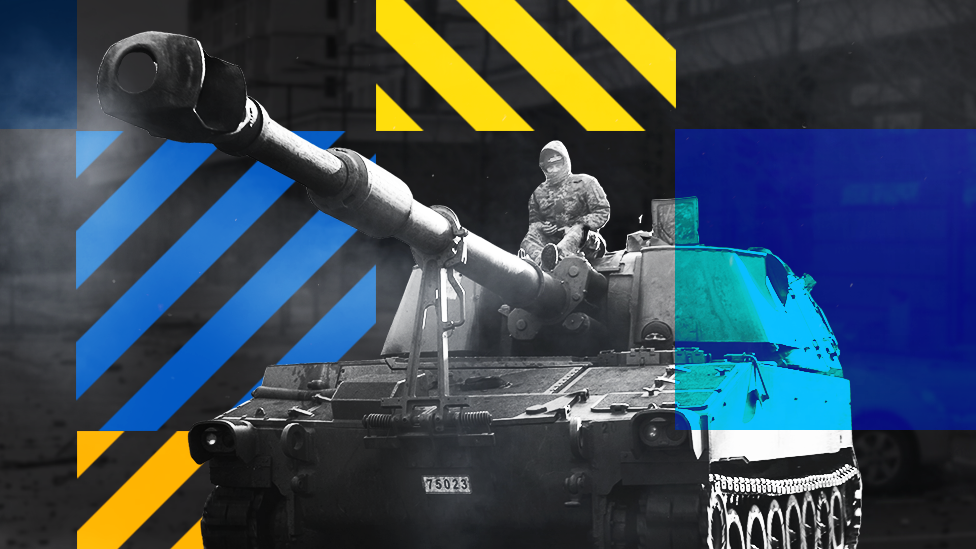Russia Ukraine: Sending US troops not on table - Biden
- Published
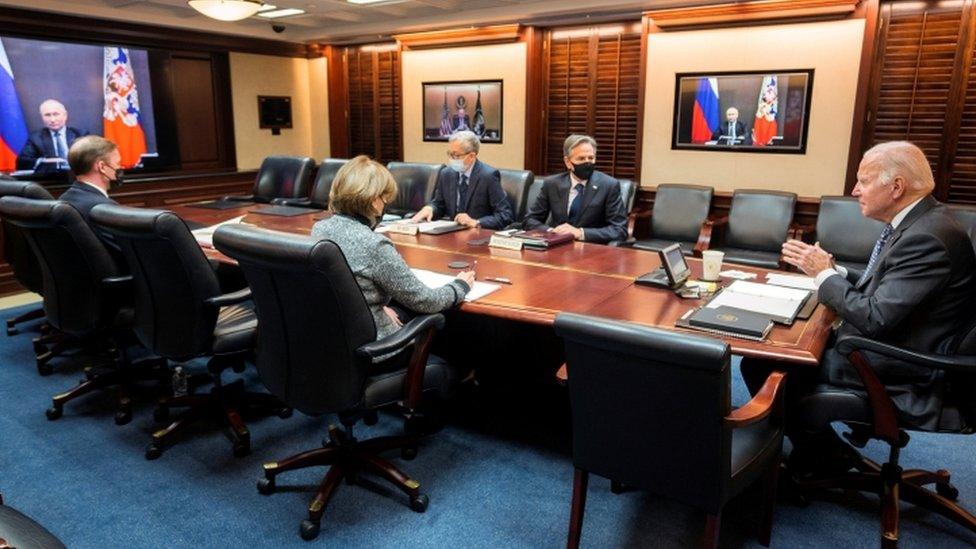
Mr Biden said he was confident Mr Putin got his message
US President Joe Biden has said that putting American troops on the ground in Ukraine in the event of a Russian invasion is "not on the table".
But Mr Biden warned of severe consequences if Russia did invade.
He was speaking a day after two hours of talks by video link with Russian President Vladimir Putin.
The virtual summit was aimed at reducing tensions in the region after a major Russian troop build-up along Ukraine's eastern border.
Russia has accused Ukraine of provocation, and sought guarantees against eastward Nato expansion and deployment of weapons close to Russia.
Ukrainian authorities have said Moscow could be planning a military offensive at the end of January, although US officials say it is not yet clear whether President Putin has made a decision.
Speaking on Wednesday, Mr Putin refused to say whether he would order troops into Ukraine. But he said he could not sit back while the military alliance moved close to Russia.
Mr Biden said he had made it clear to Mr Putin during Tuesday's meeting that there would be "economic consequences like none he's ever seen".
He was confident that the Russian leader got the message, he added.
But when asked about possible military action, Mr Biden said the US's moral and legal obligations to its Nato allies in the region did not extend to Ukraine, who is not a member of the 30-member organisation.
"The idea that the US is going to unilaterally use force to confront Russia invading Ukraine is not on the cards right now," he said.
The US president said he hoped high-level meetings with Russia and at least four major Nato allies to discuss Russia's concerns would be announced by Friday.
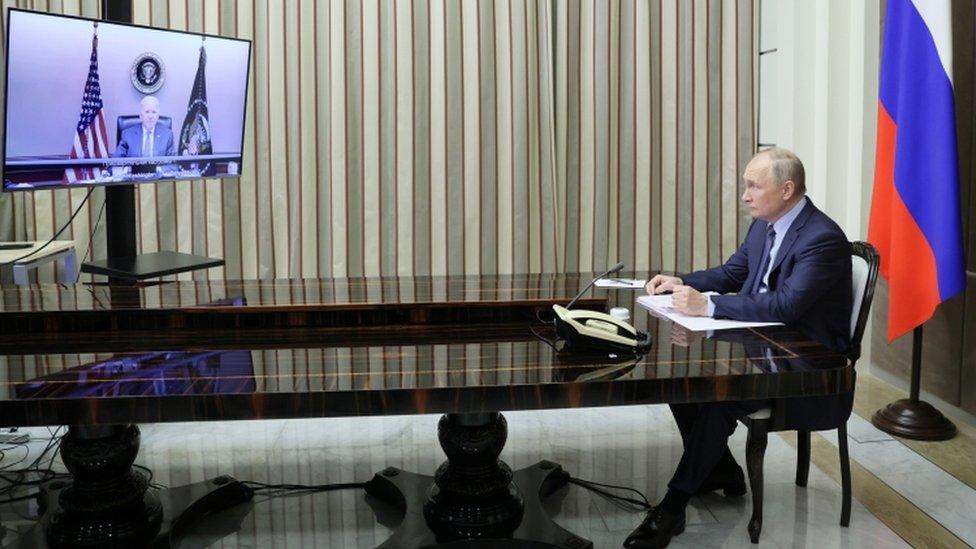
Mr Putin spoke from his residence in Sochi
The US has not specified what economic consequences it has in mind, but on Tuesday National Security Adviser Jake Sullivan said Nord Stream 2 - a new gas pipeline from Russia to Germany bypassing Ukraine which is not yet in operation - provided "leverage" for the US and its allies.
Other possible measures include restrictions on Russia's banks converting roubles into foreign currencies, or even disconnecting Russia from the Swift global financial payment system, reports say.
Russian troop build-up: View from Ukraine front line
Ukraine's President Volodymyr Zelensky said that, while Tuesday's talks brought "no sensations", he was grateful for President Biden's "unwavering support".
More than 90,000 Russian troops are believed to be massed near Ukraine's borders. The movement has strained already tense relations between Russia and the US.
A large part of the recent Russian military build-up is in Crimea, a Black Sea peninsula which Russia seized from Ukraine and then annexed in 2014.
Troops are also gathering near Ukraine's eastern regions of Donetsk and Luhansk, parts of which are under the control of Russian-backed separatists.
More than 14,000 people have lost their lives in seven years of conflict since Russian-backed forces seized large areas of Ukraine's east.

What form Russia's military option could take
By Jonathan Marcus of the Strategy and Security Institute, University of Exeter
Russia's military option could take a variety of forms from a large incursion, to a significant invasion of the eastern part of Ukraine. One aim would be to bring the main fighting elements of the Ukrainian army to battle and to inflict such a defeat upon them that the Kyiv government has to rethink its position.
Invading territory amidst a hostile population has significant risks. Ukraine's armed forces have had some Western weaponry and training and are much improved since 2015. However, Russian forces have also improved over recent years. The firepower Russia is building up is impressive. For all the talk about Ukrainian sovereignty Nato cannot and will not come to Ukraine's aid.
And additional weapons supplies might simply contribute to Russia's justification for war.


- Published5 December 2021
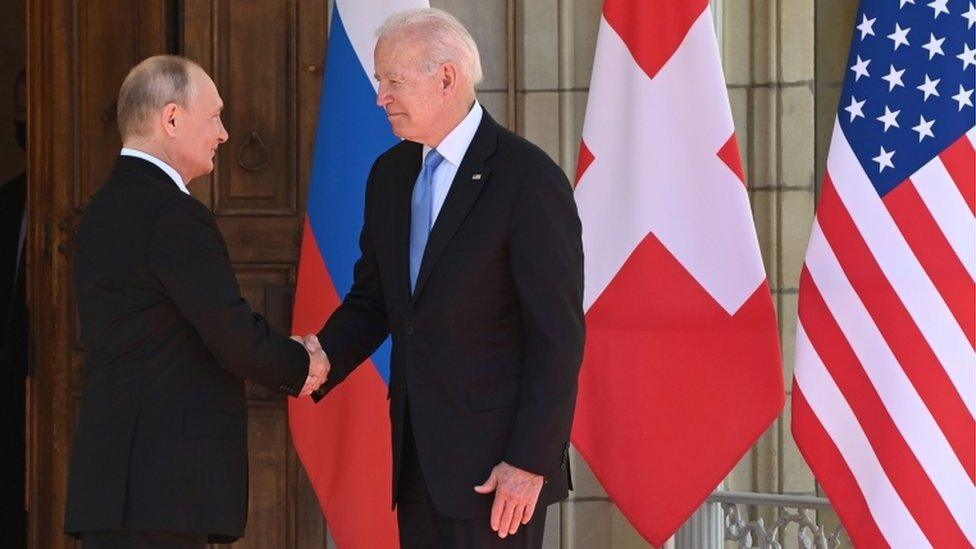
- Published4 December 2021
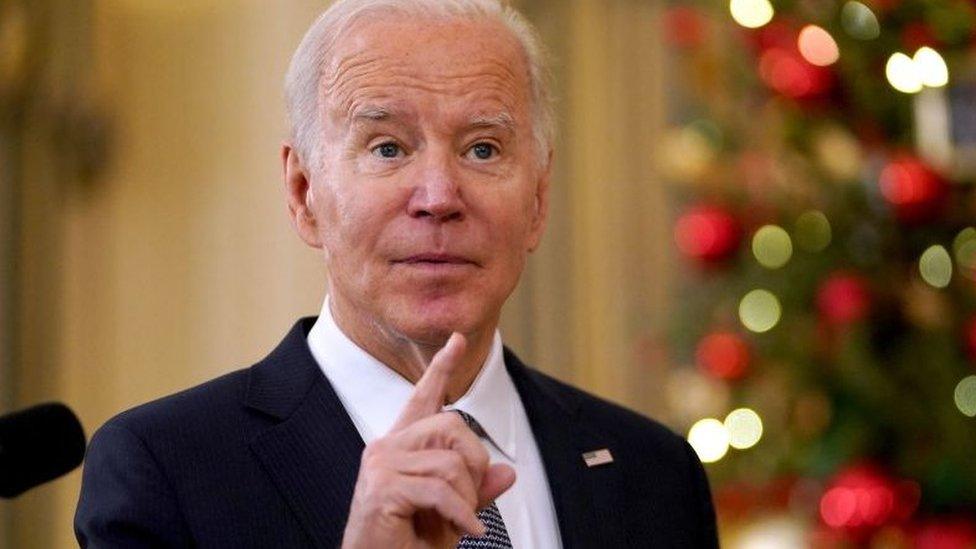
- Published15 November 2021
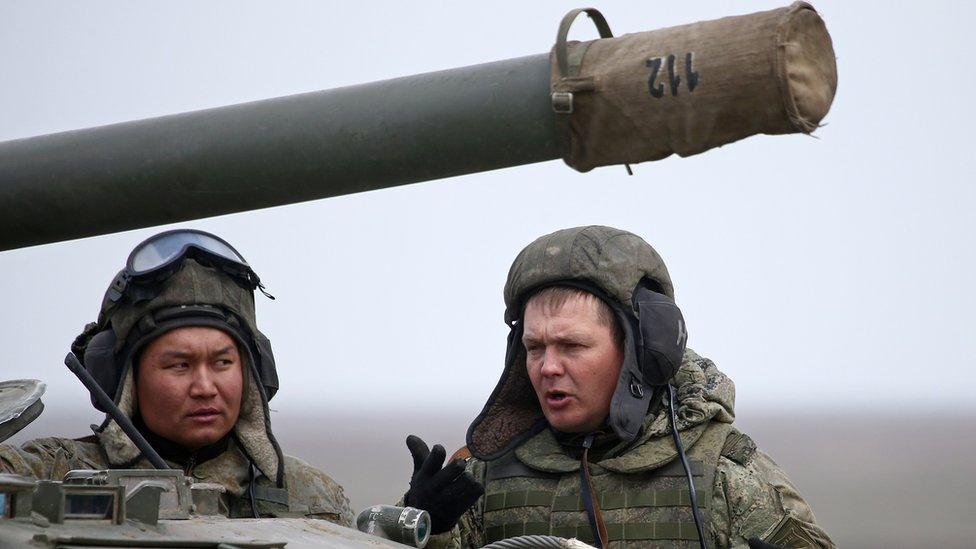
- Published24 February 2023
